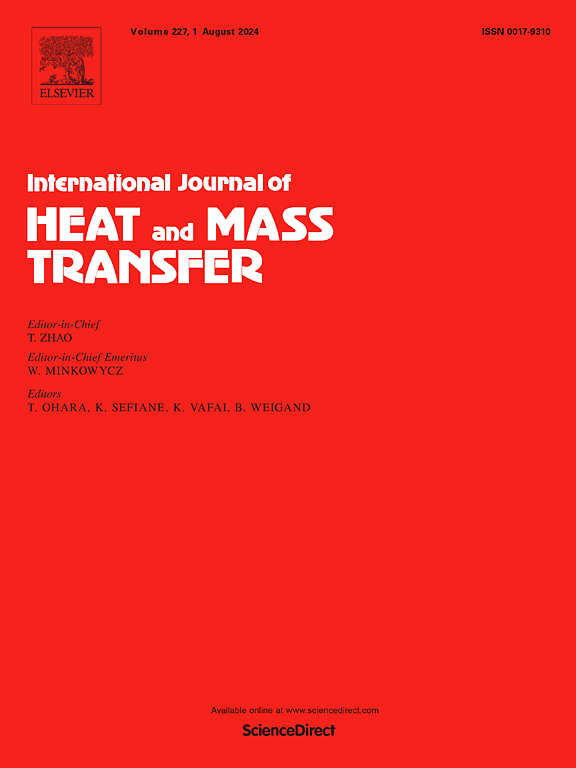Theoretical model for predicting the yield strength of metal materials under electrically-assisted deformation
IF 5
2区 工程技术
Q1 ENGINEERING, MECHANICAL
International Journal of Heat and Mass Transfer
Pub Date : 2024-11-29
DOI:10.1016/j.ijheatmasstransfer.2024.126496
引用次数: 0
Abstract
In this paper, based on the Force-Heat equivalence energy density principle, considering the thermal and athermal effects caused by current, the theoretical model for the current density dependent yield strength of metallic materials is developed. The novelty of this work lies in the fact that no adjustable fitting parameters were introduced during the modeling process, and both the Joule heating effect and the energy changes brought about by free electrons were considered in the contribution to the yield behavior of metallic materials, on which basis a critical energy density related to yield under the action of electric current was proposed. This model reveals the quantitative relationships between elastic modulus, steady-state temperature, electrical resistivity, thermal conductivity, current density, and yield strength under the action of current. The theoretical prediction results have achieved good consistency with experimental results. Furthermore, based on the principles of energy conservation and the assumption of steady-state, a theoretical expression was derived to predict the steady-state temperature caused by Joule heating. In addition, the results of the model analysis indicate that increasing the electrical resistivity of the material or decreasing its thermal conductivity can both facilitate plastic deformation and processing in electrically-assisted forming processes, especially at high current densities. This work provides an effective method for quantitatively evaluating the yield strength of metallic materials under the action of electric current, which can offer theoretical basis and optimization guidance for the extensive application and further development of electrically-assisted processes.
求助全文
约1分钟内获得全文
求助全文
来源期刊
CiteScore
10.30
自引率
13.50%
发文量
1319
审稿时长
41 days
期刊介绍:
International Journal of Heat and Mass Transfer is the vehicle for the exchange of basic ideas in heat and mass transfer between research workers and engineers throughout the world. It focuses on both analytical and experimental research, with an emphasis on contributions which increase the basic understanding of transfer processes and their application to engineering problems.
Topics include:
-New methods of measuring and/or correlating transport-property data
-Energy engineering
-Environmental applications of heat and/or mass transfer

 求助内容:
求助内容: 应助结果提醒方式:
应助结果提醒方式:


